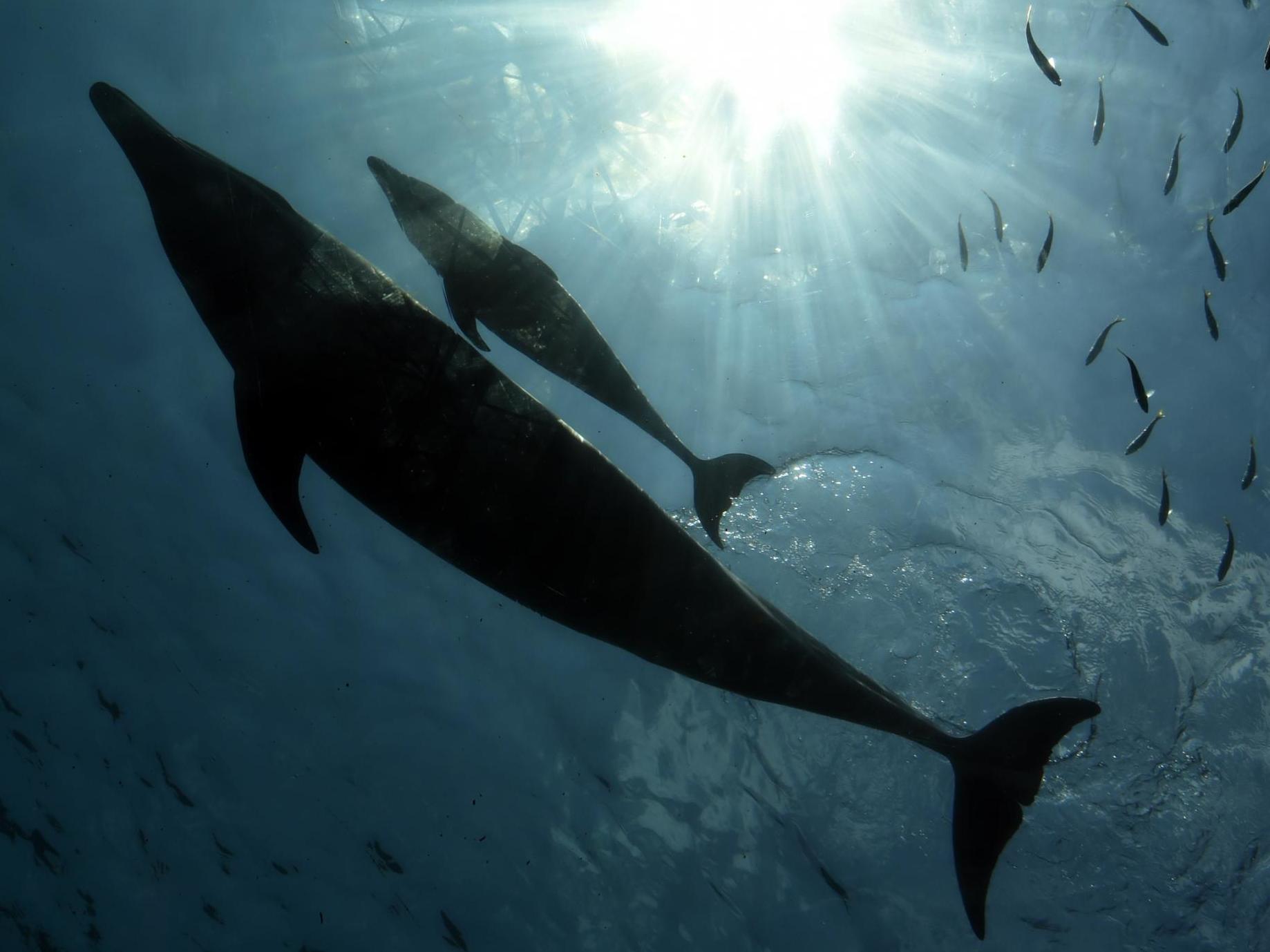Dolphin adopts baby whale in ‘astonishing’ first known case
Orphan began to behave like his adopted family, researchers observed

Your support helps us to tell the story
From reproductive rights to climate change to Big Tech, The Independent is on the ground when the story is developing. Whether it's investigating the financials of Elon Musk's pro-Trump PAC or producing our latest documentary, 'The A Word', which shines a light on the American women fighting for reproductive rights, we know how important it is to parse out the facts from the messaging.
At such a critical moment in US history, we need reporters on the ground. Your donation allows us to keep sending journalists to speak to both sides of the story.
The Independent is trusted by Americans across the entire political spectrum. And unlike many other quality news outlets, we choose not to lock Americans out of our reporting and analysis with paywalls. We believe quality journalism should be available to everyone, paid for by those who can afford it.
Your support makes all the difference.A bottlenose dolphin is believed to have adopted a baby melon-headed whale in the first known case of its kind.
In 2014, scientists noticed a bottlenose mother was caring for a peculiar-looking male calf as well as her biological calf.
As they studied the trio, which were swimming in coastal waters off French Polynesia, they identified the orphan as a melon-headed whale, an entirely different species.
“We were really excited to be able to witness such a rare phenomenon,” Pamela Carzon, the study’s lead author and scientific leader of the Groupe d’Etude des Mammiferes Marins de Polynesie, told National Geographic.
“At the time we were really, really astonished.”
As Ms Carzon observed the dolphin family, they found the whale rarely left his adopted mother’s side.
Such a trio is rarely seen in the wild, as dolphin mothers typically care for only one infant at a time.
The whale also competed with its adopted sibling for attention and began to behave like the dolphins.
He would regularly socialise with other young dolphins and join them in surfing and leaping into waves.
In the study, published in the journal Ethology, the authors suggested the foster mother’s “inexperience and personality” may have contributed to the adoption.
They also said the adoptee’s “persistence in initiating and maintaining an association” with the adoptive mother “could have played a major role in the adoption’s ultimate success”.
The melon-headed whale and bottlenose dolphin mother stayed together for almost three years.
They stuck together after the mother’s biological calf vanished for unknown reasons at around one-and-a-half years old.
The adopted calf disappeared around the time he would have weaned.
Join our commenting forum
Join thought-provoking conversations, follow other Independent readers and see their replies
Comments